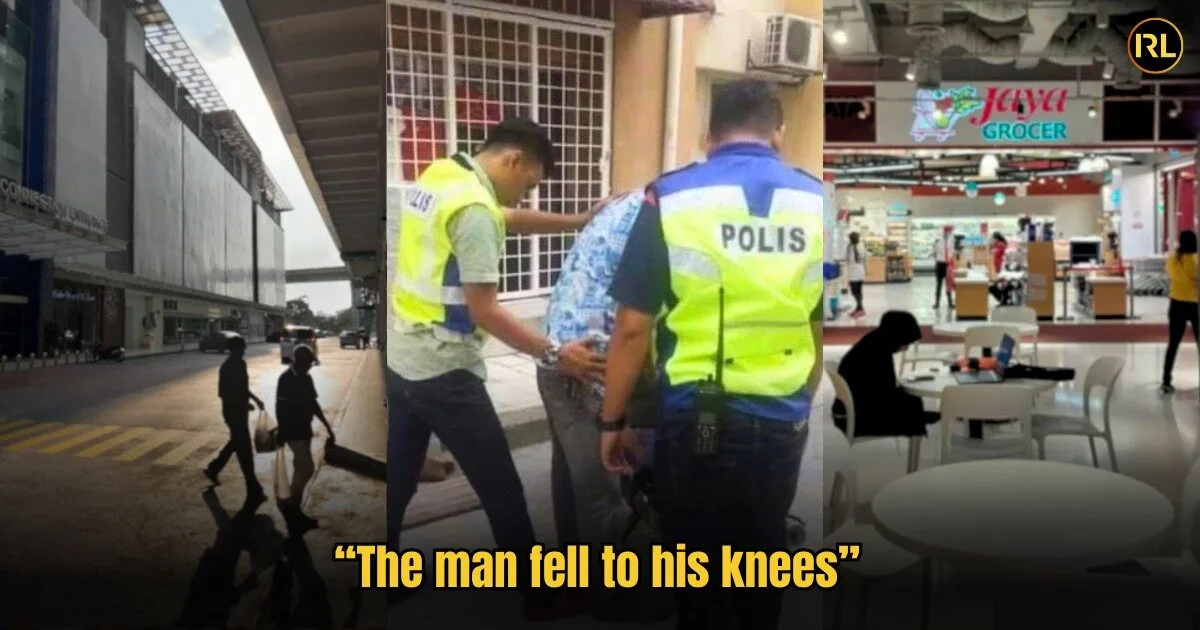
This story is about a PDRM officer who reminded me that kindness and justice are universal values, and that real authority is shown through empathy, not just enforcement.
I’m a police officer stationed in Penang. I won’t mention which station, but let’s just say, I’ve seen my fair share of cases—big and small.
One day, during my shift, I got a call to handle a shoplifting case at Tesco.
When I arrived, I was led into the security room where a Malay man sat on a chair. On the table in front of him were two packs of Gardenia bread.
I asked the security guard what happened.
“He stole the bread,” the guard said.
I looked at the bread. The total value wasn’t even RM10.
“Serious ah? Nak kena tangkap jugak?” I asked the guard. Three times I asked, hoping for some common sense. But the guard just shook his head.
“Arahan dari atas,” he said.
Orders from management. No exceptions.
So, I did my job. I put the man in the car and drove him to the station. But along the way, I asked him, “Kenapa curi?”
His voice was small, almost embarrassed.
“Tak ada duit nak beli… Anak kat rumah dah dua hari tak makan nasi. Saya cuma mampu bagi dia makan Mamee je.”
Mamee. The 20-sen snack.
I felt something tighten in my chest. I thought of my own kids at home.
At the station, the Tesco guard was already there, bread in hand, ready to file the report.
At that moment, our Assistant Officer-in-Charge (AOCS) walked in. A no-nonsense man, but with a good heart.
“What’s this?” he asked, looking at the case file.
When he heard the story, he turned to the Tesco guard.
“Ni kau nak report? Dua bungkus roti?”
The guard hesitated. “Saya ikut arahan atas…”
AOCS sighed. “Call bos kau datang.”
Twenty minutes later, a woman from Tesco’s management arrived. The moment she stepped in, she got an earful from AOCS.
But even after that, she still insisted, “Kalau nak settle, kena bayar sepuluh kali ganda dari harga barang.”
Without hesitation, AOCS pulled out his wallet and handed over the money.
“Settle,” he said.
The man—who had been sitting quietly the whole time—suddenly fell to his knees, tears streaming down his face.
“Terima kasih, encik. Terima kasih banyak-banyak.”
AOCS helped him up.
“Sekarang ni Allah bukan uji hang. Allah tengah uji aku—nak tengok aku buat apa dengan pangkat aku untuk bantu saudara yang susah.”
I found out later that the man had lost his factory job. His wife had left, and he was struggling to care for his five-year-old son.
Before he left, AOCS pressed some extra money into his hands. “Gunakan untuk anak hang.”
Months later, that same man came back to the station. He had found a new job and wanted to repay what AOCS had given him.
But by then, AOCS had already been transferred to another district.
To this day, I remember what he told me:
“Kalau nampak orang susah, jangan fikir Allah tengah uji dia. Allah tengah uji kita. Tengok apa kita buat bila orang lain perlukan pertolongan.”
Salute, Sarjan Mejar Shahruddin.
You taught me more than any case ever could.
Credit: Mohd Rosli Wahab
Have a story to share?
Submit your story to ym.efillaerni@olleh and you may be featured on In Real Life Malaysia.
Read also: “The QR Code Was Fake,” M’sian Man Loses RM3,000 to a Parking Fine Scam in Johor Bahru – In Real Life
“The QR Code Was Fake,” M’sian Man Loses RM3,000 to a Parking Fine Scam in Johor Bahru












